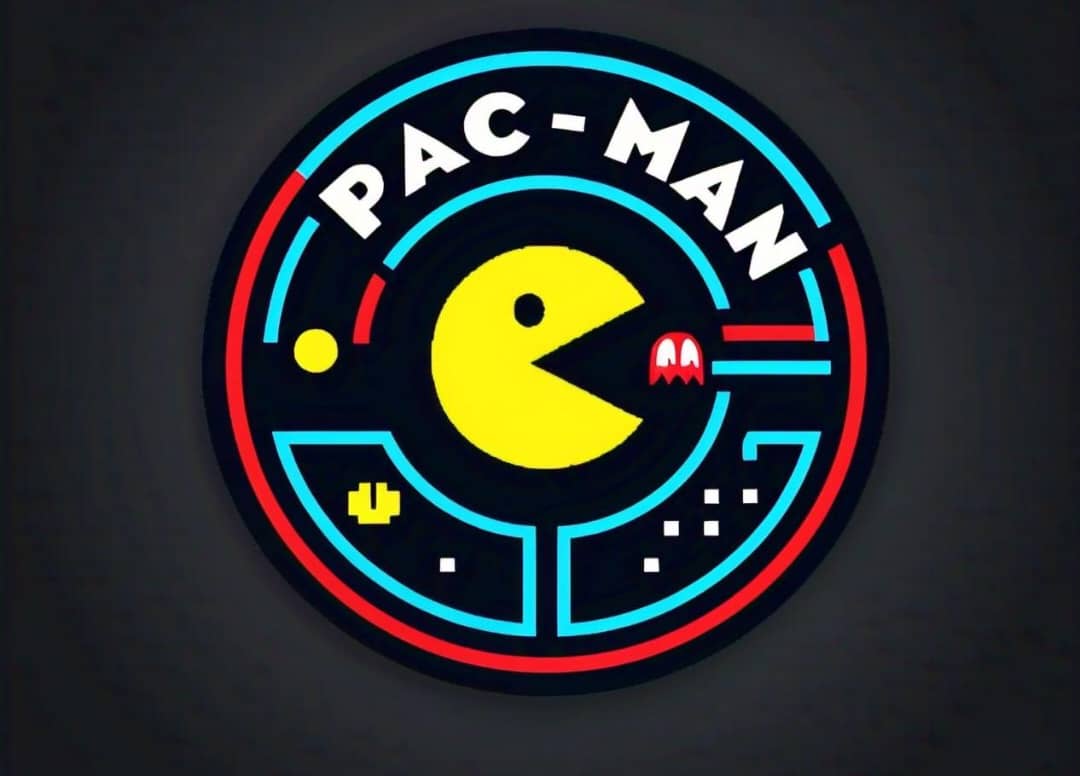The Evolution of Gaming: Then And Now
World of gaming has come a long way since its humble beginnings. From simple, pixelated graphics to immersive, virtual reality experiences, the evolution of gaming has been a wild ride. What started as a niche hobby has grown into a global phenomenon, with millions of players around the world. But have you ever wondered how it all began?
Today, gaming is a multi-billion-dollar industry, with a vast array of genres, platforms, and gameplay styles to choose from. From the casual mobile gamer to the hardcore console enthusiast, there's something for everyone in the world of gaming. But beneath the surface of this modern gaming landscape lies a rich and fascinating history, full of innovative technologies, iconic games, and pioneering developers.
In this post, we'll take a journey through the history of gaming, highlighting the key milestones, innovations, and games that have shaped the industry into what it is today. From the first computer games to the latest console releases, we'll explore the fascinating story of how gaming has evolved over the years.
We'll delve into the early days of arcade gaming, when classics like Pong, Space Invaders, and Pac-Man first captured the public's imagination. We'll examine the rise of home console gaming, from the Atari 2600 to the modern-day PlayStation and Xbox. We'll also explore the impact of PC gaming, from the early days of text-based adventures to the modern era of massively multiplayer online games.
So, let's start at the beginning and explore the fascinating history of gaming. Whether you're a retro gaming enthusiast, a hardcore gamer, or just someone curious about the evolution of this beloved hobby, this journey through the history of gaming is sure to entertain, inform, and inspire.
Today, gaming is a multi-billion-dollar industry, with a vast array of genres, platforms, and gameplay styles to choose from. From the casual mobile gamer to the hardcore console enthusiast, there's something for everyone in the world of gaming. But beneath the surface of this modern gaming landscape lies a rich and fascinating history, full of innovative technologies, iconic games, and pioneering developers.
In this post, we'll take a journey through the history of gaming, highlighting the key milestones, innovations, and games that have shaped the industry into what it is today. From the first computer games to the latest console releases, we'll explore the fascinating story of how gaming has evolved over the years.
We'll delve into the early days of arcade gaming, when classics like Pong, Space Invaders, and Pac-Man first captured the public's imagination. We'll examine the rise of home console gaming, from the Atari 2600 to the modern-day PlayStation and Xbox. We'll also explore the impact of PC gaming, from the early days of text-based adventures to the modern era of massively multiplayer online games.
So, let's start at the beginning and explore the fascinating history of gaming. Whether you're a retro gaming enthusiast, a hardcore gamer, or just someone curious about the evolution of this beloved hobby, this journey through the history of gaming is sure to entertain, inform, and inspire.

The Earlier Years (1940s - 1970s):
The earlier years of gaming was
filled up with innovative technologies of that time, scientists, and engineers alike experimenting with computer games during the development of the first computers. Those video games were of simpler text form, often played on gigantic mainframe computers.
One of the first computers ever made, "Tennis for two" , was created in 1958 by physicist William Higinbotham. Another early game was "space war!" a game developed by a group of MIT students. this space game was played on a PDP-1 mini computer being one of the first digital games.
The start of the 1970s saw the shift of video games from computer screens to simple arcade machines. This new wave started with the first ever coin-operated game, "Computer space" , in 1971. developed by Nolan Bushnell and Ted Dabney who later went on to create the company Atari. However, it was the release of "Pong" in 1972 that truly started the gaming industry.
After the success of arcade machines, newer ideas came forward with the introduction of the video consoles. The earlier years saw the release of the first video console, The magnavox odyssey in 1972. This trailblazing console came with different built-in games like Ping-pong, Checkers and a shooting game. The Atari 2600 was later released in 1977 as another influential home console that brought the arcade to our homes.
The earlier years of gaming was
filled up with innovative technologies of that time, scientists, and engineers alike experimenting with computer games during the development of the first computers. Those video games were of simpler text form, often played on gigantic mainframe computers.
One of the first computers ever made, "Tennis for two" , was created in 1958 by physicist William Higinbotham. Another early game was "space war!" a game developed by a group of MIT students. this space game was played on a PDP-1 mini computer being one of the first digital games.
The start of the 1970s saw the shift of video games from computer screens to simple arcade machines. This new wave started with the first ever coin-operated game, "Computer space" , in 1971. developed by Nolan Bushnell and Ted Dabney who later went on to create the company Atari. However, it was the release of "Pong" in 1972 that truly started the gaming industry.
After the success of arcade machines, newer ideas came forward with the introduction of the video consoles. The earlier years saw the release of the first video console, The magnavox odyssey in 1972. This trailblazing console came with different built-in games like Ping-pong, Checkers and a shooting game. The Atari 2600 was later released in 1977 as another influential home console that brought the arcade to our homes.
The Golden Age (1970s-1980s)
The late 1970s to mid 1980s were seen as transformative times for the gaming industry. This period was known as the golden age of gaming, citing the rise of iconic arcade games , the introduction of home consoles and establishments of gaming genres dominating today's industry.
The Golden age of gaming was a transformative period that defined the industry what it is today. Arcade game center for gamers such as Pac-Man, Donkey Kong and Space Invaders bringing in different people from all walks of life. Simple yet addictive games, easy game play with challenging objectives.
The Golden of Age wouldn't be complete without the introduction of home consoles, like the Atari 2600, ColecoVision, intellivision offered a wide range of games, from adventure games to simple shooters.
3D Graphics and CD-ROM (1990s)
The revolutionary period for the gaming industry was the 1990s. With the introduction of Polygon graphics, the industry slowly turned the way games were developed and designed before.
3D graphics were still in their formative years in the early 1990s, With the introduction of Polygon graphics, the industry slowly turned complex 3D environmental games like Virtua Racing (1990) and Virtua Fighter (1993) stirred the course for something new, paving ways for future innovations.
Joint collaboration of 3D graphics and CD-ROM technologies aided developers to create games that were more complex but engaging, leading to the creation of new genres, such as 3D platformers and survival horror like Tomb Raiders (1996) and Resident Evil (1996) . offering significant increases in storage capacity when compared to the likes of floppy disks. Enabling developers to create more complex and realistic games of the likes of Myst (1993), 7th Guest (1993) incorporating CD-ROM technology to create immersive and captivating environments.
The revolutionary period for the gaming industry was the 1990s. With the introduction of Polygon graphics, the industry slowly turned the way games were developed and designed before.
3D graphics were still in their formative years in the early 1990s, With the introduction of Polygon graphics, the industry slowly turned complex 3D environmental games like Virtua Racing (1990) and Virtua Fighter (1993) stirred the course for something new, paving ways for future innovations.
Joint collaboration of 3D graphics and CD-ROM technologies aided developers to create games that were more complex but engaging, leading to the creation of new genres, such as 3D platformers and survival horror like Tomb Raiders (1996) and Resident Evil (1996) . offering significant increases in storage capacity when compared to the likes of floppy disks. Enabling developers to create more complex and realistic games of the likes of Myst (1993), 7th Guest (1993) incorporating CD-ROM technology to create immersive and captivating environments.
Modern Gaming (2000s-present)
The gaming industry has foregone significant transformation it's beginnings from the early eras of arcade to virtual reality and cloud gaming, the current industry striving to consistently push the boundaries of innovation in technology.
on few of the improvements so far:
High-performance hardware.
Online gaming.
Augmented Reality (AR) and Virtual Reality (VR).
Machine Learning (ML) and Artificial Intelligence(AI)
Realistic graphics.
Modern day has had a significant impact on its industry and players alike . Some significant advancements include;
Increase Accessibility
Social connections and communities.
Diversified game genre.
Economic growth.
As technology continues its evolution the expectations of more exciting developments are guaranteed as a sure fix; AI-Driven Game Developments, Game Streaming and Cloud Gaming, further Advancement in AR and VR.
The evolution of video games have undergone so many different trials from just text played on a massive computer screen in a lab by a selected few to every single person on earth having the privilege to own a copy. As we look upon the future one thing is clear: gaming continues its advancements making the impossible possible.
The gaming industry has foregone significant transformation it's beginnings from the early eras of arcade to virtual reality and cloud gaming, the current industry striving to consistently push the boundaries of innovation in technology.
on few of the improvements so far:
High-performance hardware.
Online gaming.
Augmented Reality (AR) and Virtual Reality (VR).
Machine Learning (ML) and Artificial Intelligence(AI)
Realistic graphics.
Modern day has had a significant impact on its industry and players alike . Some significant advancements include;
Increase Accessibility
Social connections and communities.
Diversified game genre.
Economic growth.
As technology continues its evolution the expectations of more exciting developments are guaranteed as a sure fix; AI-Driven Game Developments, Game Streaming and Cloud Gaming, further Advancement in AR and VR.
The evolution of video games have undergone so many different trials from just text played on a massive computer screen in a lab by a selected few to every single person on earth having the privilege to own a copy. As we look upon the future one thing is clear: gaming continues its advancements making the impossible possible.

